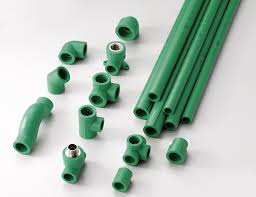Oct . 09, 2024 01:39 Back to list
hdpe pipe use factories
The Role of HDPE Pipes in Modern Factories
High-Density Polyethylene (HDPE) pipes have become a staple in modern industrial applications due to their impressive properties and versatility. As industries evolve and demand for efficient, sustainable materials increases, HDPE pipes offer a solution that meets the needs of various manufacturing plants and facilities.
What is HDPE?
HDPE is a thermoplastic polymer made from petroleum. Its lightweight yet durable nature makes it an ideal material for a vast array of applications, especially in piping systems. HDPE pipes are known for their excellent resistance to chemicals, corrosion, and UV rays, making them suitable for both indoor and outdoor use. Additionally, their flexibility allows for easier installation and handling, reducing labor costs and time.
Advantages of HDPE Pipes in Factories
1. Corrosion Resistance One of the primary benefits of HDPE pipes is their resistance to corrosion. Many traditional piping materials, such as metal, are susceptible to rust and degradation over time, especially when transporting chemicals. HDPE, on the other hand, remains unaffected by most chemicals and will not corrode, extending the lifespan of the piping system and minimizing maintenance costs.
2. Durability and Longevity HDPE pipes are designed to withstand harsh environmental conditions and mechanical stresses. Their durability means that they can last for decades, significantly reducing the need for frequent replacements. This is particularly beneficial in factories where downtime can result in substantial financial losses.
3. Flexible Design The flexibility of HDPE allows it to be easily manipulated during installation. It can be bent and shaped to fit the specific requirements of a factory layout without the need for joints, thereby reducing points of potential failure. This characteristic is advantageous in complex designs where traditional rigid pipes would be challenging to install.
4. Cost-Effectiveness Although the initial investment for HDPE pipes may be higher compared to conventional materials, their long-term benefits outweigh the upfront costs. The combination of reduced maintenance needs, longevity, and installation efficiency translates into lower overall expenses for factories.
5. Environmental Benefits The use of HDPE pipes aligns with sustainability practices as they can be recycled and are manufactured with a lower environmental impact compared to other materials. Their durability also means fewer resources are required for repairs and replacements, further lowering the ecological footprint of a manufacturing facility.
hdpe pipe use factories

Applications of HDPE Pipes in Factories
HDPE pipes find applications across various sectors within factories. They are extensively used for
- Water Supply Factories typically require a reliable water supply for operations. HDPE pipes are ideal for transporting potable water, as they do not leach harmful substances.
- Wastewater Management Many manufacturing processes generate wastewater that must be efficiently managed. HDPE pipes are perfect for sewage and wastewater applications, as their chemical resistance ensures safety and compliance with environmental regulations.
- Chemical Transport Industries dealing with hazardous materials benefit significantly from HDPE pipes. Their robust construction safeguards against leaks and spills, ensuring a safe working environment.
- Irrigation Systems In factories that incorporate agricultural components, HDPE pipes serve as a primary choice for irrigation systems due to their flexibility and resistance to clogging.
Conclusion
In conclusion, the adoption of High-Density Polyethylene pipes in factories represents a significant advancement in industrial infrastructure. Their numerous benefits, including resistance to corrosion, flexibility, cost-effectiveness, and environmental advantages, make them an optimal choice for a variety of applications. As industries continue to prioritize sustainable practices and efficiency, HDPE pipes will undoubtedly play a crucial role in shaping the future of manufacturing environments.
With the ongoing advancement in material science and engineering, the capabilities and applications of HDPE piping systems are expected to expand further, solidifying their position as indispensable components in modern factories. The transition towards using HDPE pipes is not just a trend—it's a necessary step towards enhanced performance, safety, and sustainability in industrial operations.
-
High-Quality PVC Borehole Pipes Durable & Versatile Pipe Solutions
NewsJul.08,2025
-
High-Quality PVC Perforated Pipes for Efficient Drainage Leading Manufacturers & Factories
NewsJul.08,2025
-
High-Quality PVC Borehole Pipes Durable Pipe Solutions by Leading Manufacturer
NewsJul.08,2025
-
High-Quality PVC Borehole Pipes Reliable PVC Pipe Manufacturer Solutions
NewsJul.07,2025
-
High-Quality UPVC Drain Pipes Durable HDPE & Drain Pipe Solutions
NewsJul.07,2025
-
High-Quality Conduit Pipes & HDPE Conduit Fittings Manufacturer Reliable Factory Supply
NewsJul.06,2025

